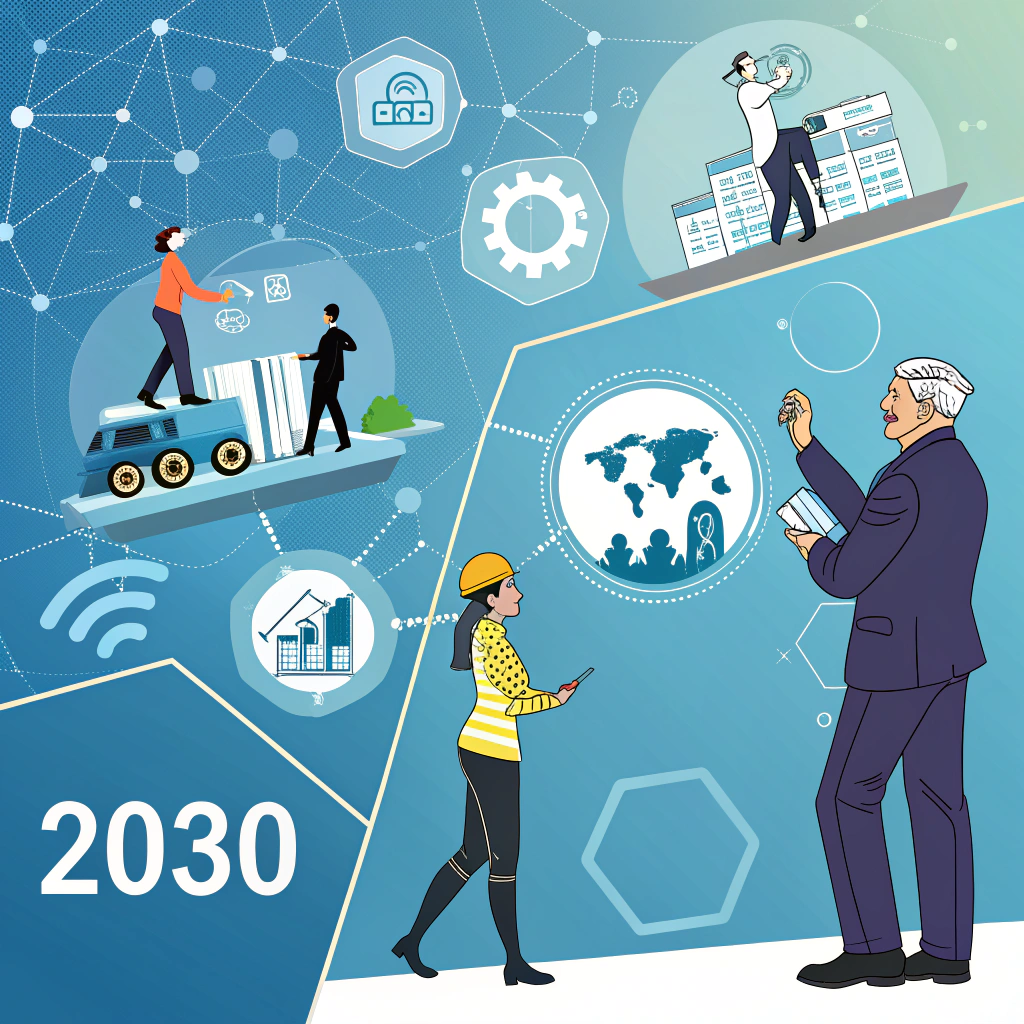
The pace of change in the business world has never been faster, and the driving force behind much of this transformation is Artificial Intelligence (AI). From predictive analytics to generative algorithms, AI is redefining how organizations operate. But as machines take on more roles, from data crunchers to virtual assistants, one crucial question becomes even more urgent:
What will leadership look like in 2030?
At CorporateOne, we help future-focused organizations explore this evolving question. As we prepare for a workplace dominated by smart systems, automation, and human-machine collaboration, the role of the leader is being reshaped in real time. The qualities that define great leadership today—emotional intelligence, adaptability, strategic vision—will not vanish. In fact, they will be amplified.
In this long-form blog, we examine five defining traits of great leaders in the age of AI, supported by emerging trends, global workplace shifts, and our own experience at www.corporate.one.
Historically, leadership was often about authority, control, and command. In the AI era, the most successful leaders will be those who lead with empathy. As AI systems handle technical tasks with increasing efficiency, the human need for connection, belonging, and psychological safety becomes even more important.
Leaders of 2030 will prioritize emotional intelligence over micromanagement. They’ll need to navigate diverse, global teams, often working across time zones and cultures, through hybrid and virtual channels. The ability to listen deeply, understand varied perspectives, and foster inclusion will be more valuable than ever.
At CorporateOne, we believe that empathetic leadership isn't a "soft skill"—it's a core competency for the future of work. We help organizations build emotional literacy across all levels of leadership through coaching, training, and culture design.
AI isn't just another tool; it's a new way of thinking. Leaders of 2030 must be AI-fluent—not necessarily in terms of programming, but in terms of understanding how AI works, how it can be used, and where its ethical boundaries lie.
AI fluency means asking smart questions like:
The next generation of leaders must serve as ethical stewards of technology, ensuring that AI deployment aligns with organizational values and societal impact.
At www.corporate.one, we guide organizations in integrating AI responsibly, offering workshops and resources on ethical AI governance, decision-making frameworks, and algorithmic accountability.
In the future, data will be everywhere—and leaders will need to sift through it with both rigor and wisdom. AI will surface trends, predict risks, and offer options, but it cannot make value-based decisions.
Leaders of 2030 must be:
At CorporateOne, we teach leaders how to integrate data thinking with strategic foresight. Tools alone are not enough—mindsets and meaning-making are what turn information into innovation.
The most striking shift in leadership is toward continuous evolution. The idea of the “expert leader” who knows it all is giving way to the adaptive leader who learns it all.
By 2030, we’ll see leaders who:
They won’t have fixed hierarchies or static playbooks—they’ll have flexible strategies and dynamic teams. That’s why learning agility, openness to feedback, and a growth mindset will be essential leadership traits.
At www.corporate.one, we’ve built development frameworks that promote lifelong learning across organizations. Whether through microlearning, leadership labs, or virtual coaching, we empower leaders to keep evolving.
As AI transforms how we work, the question of why we work becomes more important.
The leaders of 2030 will not only drive business goals—they’ll embody purpose, transparency, and ethical intent. People want to work for organizations that do good, not just do well. And they look to their leaders for vision and values.
Purpose-driven leaders:
At CorporateOne, we’ve seen that organizations anchored in purpose outperform their peers—not just in revenue, but in engagement, retention, and innovation. Purpose is not just a moral compass; it’s a strategic advantage.
The path to 2030 starts now. To prepare for the future of leadership, organizations must:
At CorporateOne, we partner with forward-thinking companies to design leadership for the future—not just by adapting to change, but by leading it.
Leadership in the AI age isn’t about replacing humans with machines. It’s about elevating the human side of leadership to meet the complexity of an intelligent, interconnected world. The leaders of 2030 will be empathetic, tech-savvy, adaptable, data-literate, and purpose-driven. And they will inspire not by controlling outcomes, but by cultivating trust, meaning, and impact.
Is your organization ready for the leadership revolution?
Connect with us at www.corporate.one to explore how we can help you prepare your leaders—and your culture—for the future of work.
